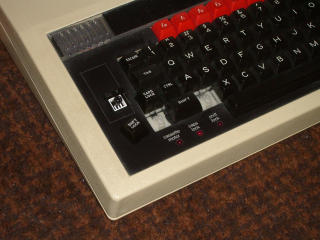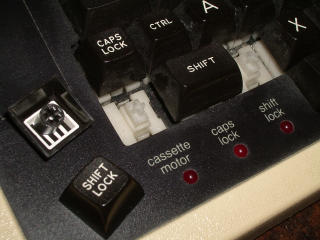I'm still not clear on what linear keyswitches are, and what exactly remains unchanged throughout the stroke.
On a BBC Micro keyboard, you just keep pressing downwards with constant force; likewise, every coin you place onto a key just moves it down a bit further -- at no point does the key suddenly drop. Is this what linear means?
I've found that the actuation point is something like 3/5 of the way down; being (presumably )linear, I find that I can type without bottoming out almost effortlessly as the keys don't drop to the bottom the instant they actuate, so you can press as hard or light as you like. Since I've not used a BBC Micro regularly for around 15 years, I don't recall what it was like to type large amounts of text on, but I couldn't type as a kid anyway!
Keyboard with metal-plate-mounted keyswitches (detached keyboard is a spare); another BBC Model B was my first computer:





Keycaps appear to be double-shot, and somewhere around 0.85 mm thick, the same as my Tulip ATK and a FILCO, which dispels my fear about FILCO keys being flimsy, as 0.85 mm seems perfectly fine to me.
